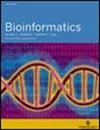phylaGAN:通过条件 GAN 和自动编码器进行数据扩增,利用微生物组数据提高疾病预测的准确性。
IF 4.4
3区 生物学
Q1 BIOCHEMICAL RESEARCH METHODS
引用次数: 0
摘要
动机研究正在提高我们对微生物组如何与人体相互作用及其对人体健康影响的认识。现有的机器学习方法在区分健康和疾病微生物组状态方面显示出巨大的潜力。然而,基于机器学习的微生物组数据预测存在一些挑战,如样本量小、病例与对照之间不平衡以及收集大量样本的成本高昂。为了应对这些挑战,我们提出了一个深度学习框架 phylaGAN,利用条件生成式对抗网络(C-GAN)和自动编码器的组合,用生成的微生物组数据来增强现有数据集。条件生成对抗网络会对两个模型进行相互训练,以计算出更大的模拟数据集,这些数据集是原始数据集的代表。结果在两个数据集(T2D 研究和肝硬化研究)上进行了广泛的评估和预测分析,结果显示,使用数据增强后,平均 AUC 分别提高了 11% 和 5%。在样本量较小的肥胖和瘦弱受试者队列中进行外部验证时,与使用原始队列相比,通过 phylaGAN 增强后的平均 AUC 提高了近 32%。我们的研究结果不仅表明生成式对抗网络可以在各种多样性指标上创建模仿原始数据的样本,而且还强调了通过在合成数据上训练的机器学习模型增强疾病预测的潜力。可用性和实施https://github.com/divya031090/phylaGAN。本文章由计算机程序翻译,如有差异,请以英文原文为准。
phylaGAN: Data augmentation through conditional GANs and autoencoders for improving disease prediction accuracy using microbiome data.
MOTIVATION
Research is improving our understanding of how the microbiome interacts with the human body and its impact on human health. Existing machine learning methods have shown great potential in discriminating healthy from diseased microbiome states. However, Machine Learning based prediction using microbiome data has challenges such as, small sample size, imbalance between cases and controls and high cost of collecting large number of samples. To address these challenges, we propose a deep learning framework phylaGAN to augment the existing datasets with generated microbiome data using a combination of conditional generative adversarial network (C-GAN) and autoencoder. Conditional generative adversarial networks train two models against each other to compute larger simulated datasets that are representative of the original dataset. Autoencoder maps the original and the generated samples onto a common subspace to make the prediction more accurate.
RESULTS
Extensive evaluation and predictive analysis was conducted on two datasets, T2D study and Cirrhosis study showing an improvement in mean AUC using data augmentation by 11% and 5% respectively. External validation on a cohort classifying between obese and lean subjects, with a smaller sample size provided an improvement in mean AUC close to 32% when augmented through phylaGAN as compared to using the original cohort. Our findings not only indicate that the generative adversarial networks can create samples that mimic the original data across various diversity metrics, but also highlight the potential of enhancing disease prediction through machine learning models trained on synthetic data.
AVAILABILITY AND IMPLEMENTATION
https://github.com/divya031090/phylaGAN.
求助全文
通过发布文献求助,成功后即可免费获取论文全文。
去求助
来源期刊

Bioinformatics
生物-生化研究方法
CiteScore
11.20
自引率
5.20%
发文量
753
审稿时长
2.1 months
期刊介绍:
The leading journal in its field, Bioinformatics publishes the highest quality scientific papers and review articles of interest to academic and industrial researchers. Its main focus is on new developments in genome bioinformatics and computational biology. Two distinct sections within the journal - Discovery Notes and Application Notes- focus on shorter papers; the former reporting biologically interesting discoveries using computational methods, the latter exploring the applications used for experiments.
 求助内容:
求助内容: 应助结果提醒方式:
应助结果提醒方式:


